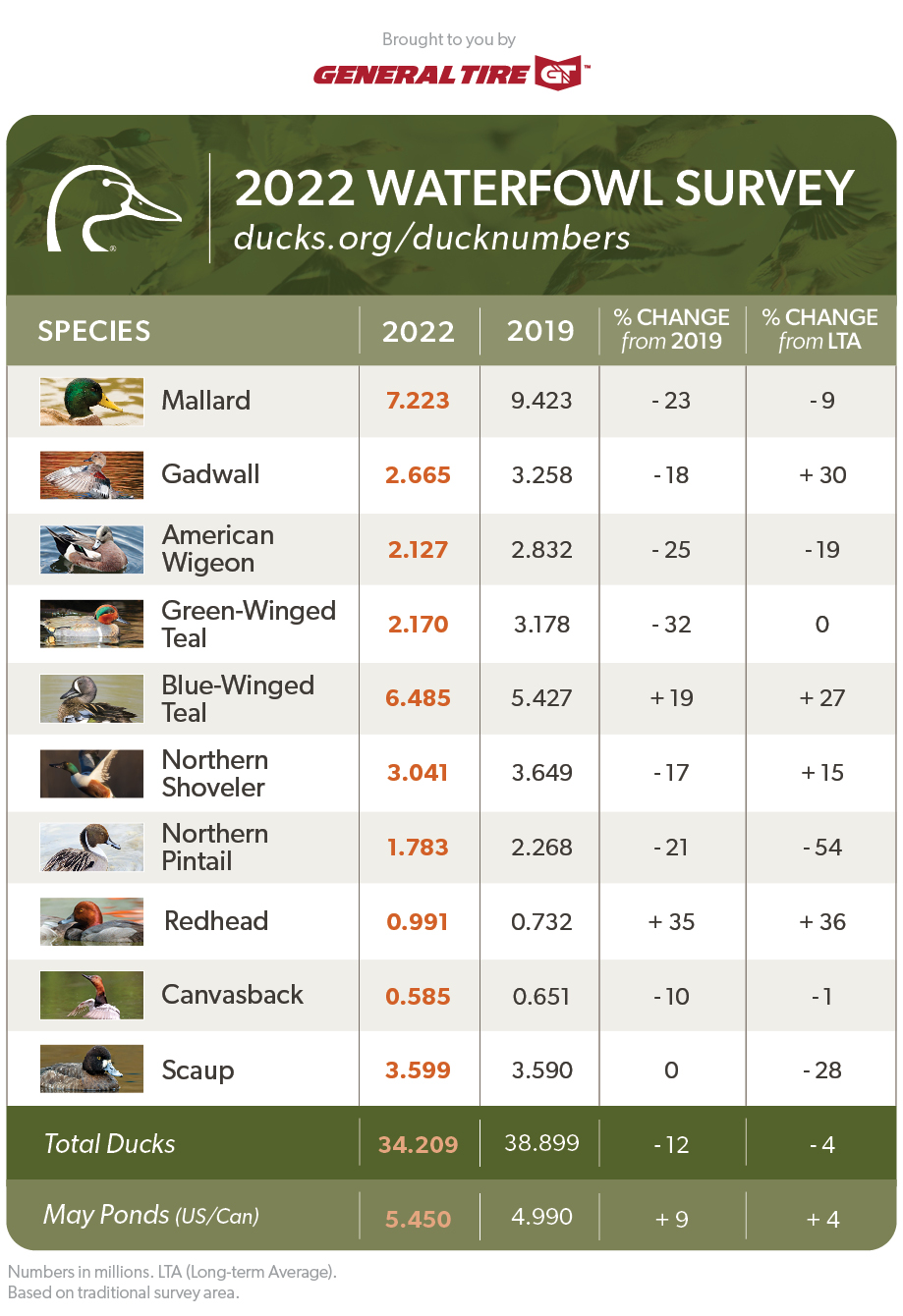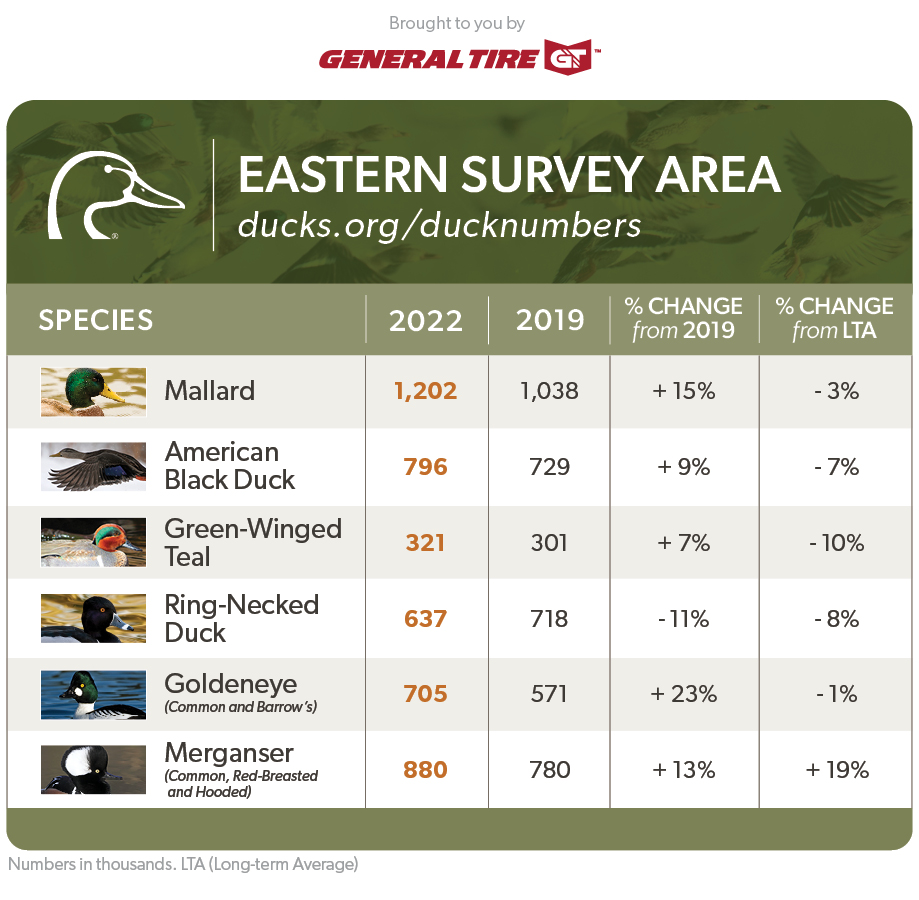Species-by-species breakdown, the USFWS Waterfowl Population Survey will help you prepare for the 2022-2023 duck hunting season

To see the most recent 2025 Waterfowl Population Survey results, please click here.
Total populations were estimated at 34.2 million
The U.S. Fish and Wildlife Service (FWS) today released its report on 2022 Trends in Duck Breeding Populations, based on surveys conducted in May and early June by FWS, Canadian Wildlife Service, and other partners.
Due to the COVID-19 pandemic, the last FWS duck breeding population survey was released in 2019.

Total populations were estimated at 34.2 million breeding ducks in the traditional survey area, 12 percent lower than 2019’s estimate of 38.9 million and 4 percent below the long-term average (since 1955).
Also included in the report are breeding population estimates for 6 common species groups from the Eastern Survey Area, covering eastern Canada and the northeastern states from Virginia to Maine.

Habitat conservation can impact these numbers. Donate Now
"Although the beneficial effects of timely precipitation during late winter and spring were evident by high pond counts across the eastern prairies, the total duck estimate in the Traditional Survey Area was the lowest in nearly 20 years," said DU Chief Scientist Dr. Steve Adair. “The drop in duck numbers reflects the consequences of low production caused by multiple years of prairie drought, including 2021, which was one of the most severe and widespread in nearly 4 decades. But the survey revealed some bright spots for duck populations and provided optimism for good production this summer and carry-over of favorable pond conditions into fall and winter."
"Whether it's good news or bad, Ducks Unlimited believes in following the science. We are grateful for our federal, state and provincial partners resuming the surveys to gather the data we've all come to rely on," said Ducks Unlimited CEO Adam Putnam. "This year's survey revealed what many expected, lower breeding duck populations partly as result of the drought we’ve experienced the last few years. While we never like to see these declines, we know that prairie drought can increase wetland productivity and sets the stage for waterfowl success when the water returns, much as it did this spring in parts of the prairie. We will not stop working toward our vision of skies filled with waterfowl today, tomorrow and forever."
To download the full report, visit the U.S. Fish and Wildlife Service Surveys and Data.
Ducks Unlimited uses cookies to enhance your browsing experience, optimize site functionality, analyze traffic, and deliver personalized advertising through third parties. By continuing to use this site, you agree to our use of cookies. View Privacy Policy